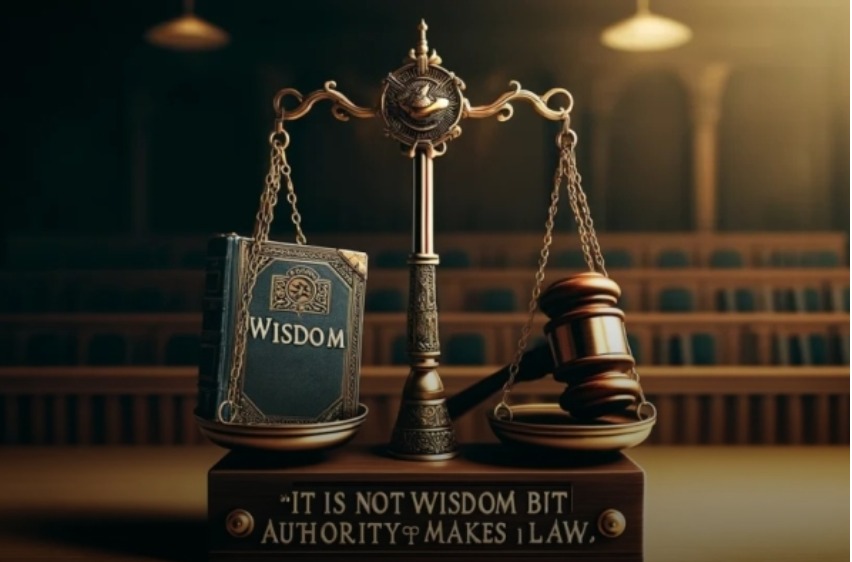Introduction
The statement, “it is not wisdom but authority that makes a law. t – tymoff,” provokes a deep and often contentious discussion about the nature of law, authority, and governance. At its core, this phrase challenges the traditional view that wisdom and moral reasoning are the primary foundations of legal systems. Instead, it suggests that the creation and enforcement of laws are driven more by authority than by any inherent wisdom.
In this extensive exploration, we will delve into various aspects of this concept, examining its historical roots, philosophical implications, and contemporary relevance. We will also discuss how this perspective impacts the legal system and society at large, providing a comprehensive understanding of why it is not wisdom but authority that makes a law. t – tymoff.
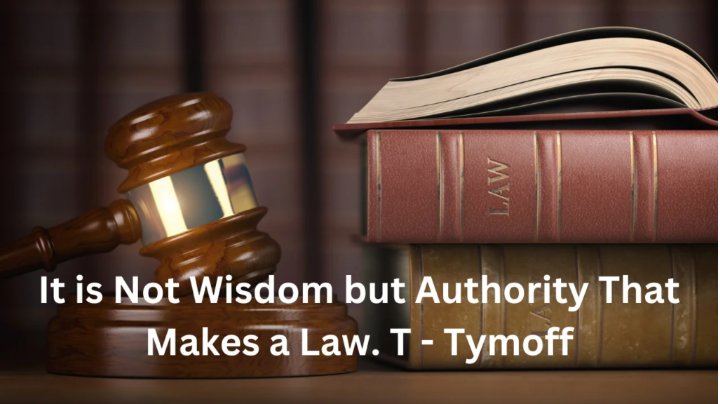
Historical Context of Legal Authority
The Evolution of Legal Systems
To understand why it is not wisdom but authority that makes a law. t – tymoff, we must first examine the historical evolution of legal systems. Early legal systems were often based on customary practices and societal norms. These norms, while they may have been influenced by collective wisdom, were enforced by authorities who held power.
In ancient civilizations such as Mesopotamia and Egypt, laws were inscribed on tablets and stones, and their authority came from divine or royal mandates. For instance, the Code of Hammurabi, one of the earliest known legal codes, was presented as a set of laws given by the gods. The authority of these laws was derived from the ruler’s divine right rather than from the wisdom of the laws themselves.
Authority vs. Wisdom in Ancient Legal Frameworks
In ancient Rome, the legal system began to develop a more structured approach with the Twelve Tables and later Roman law. The authority behind these laws was rooted in the Roman Republic’s political and social structures. Although Roman law evolved to incorporate more sophisticated legal reasoning, its authority still primarily came from the political institutions that created and enforced it.
The medieval period saw the rise of canon law in the Catholic Church, where the authority was intertwined with religious doctrines. The Church’s authority to impose laws was significant, though it was not always based on secular wisdom but rather on ecclesiastical power.
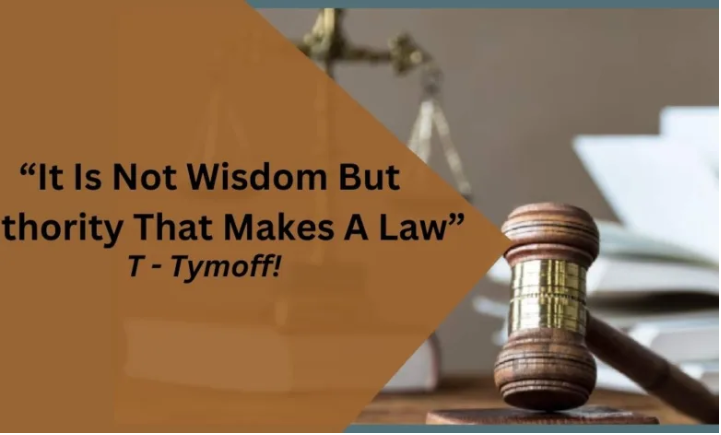
Philosophical Implications of Legal Authority
The Concept of Legal Authority
The assertion that it is not wisdom but authority that makes a law. t – tymoff raises important philosophical questions about the nature of law. Legal authority refers to the power vested in institutions and individuals to create, interpret, and enforce laws. This authority is often derived from democratic principles, social contracts, or historical power structures.
Philosophers like Max Weber have discussed the concept of authority in terms of legitimacy and coercion. Weber distinguished between different types of authority—traditional, charismatic, and legal-rational—each contributing to the formation and enforcement of laws. The emphasis on authority rather than wisdom underscores the importance of institutional power in shaping legal norms.
The Role of Wisdom in Lawmaking
While it is not wisdom but authority that makes a law. t – tymoff, wisdom still plays a role in the formulation and interpretation of laws. In democratic societies, elected representatives are expected to use their wisdom and knowledge to create just and effective laws. However, the actual power to make laws resides with the legislative bodies and institutions, whose authority often outweighs individual wisdom.
Legal positivism, a theory in legal philosophy, asserts that law is defined by the authority of the legal system rather than its moral content. According to this view, the legitimacy of a law comes from its creation and enforcement by authorized institutions, not from its alignment with moral or wise principles.
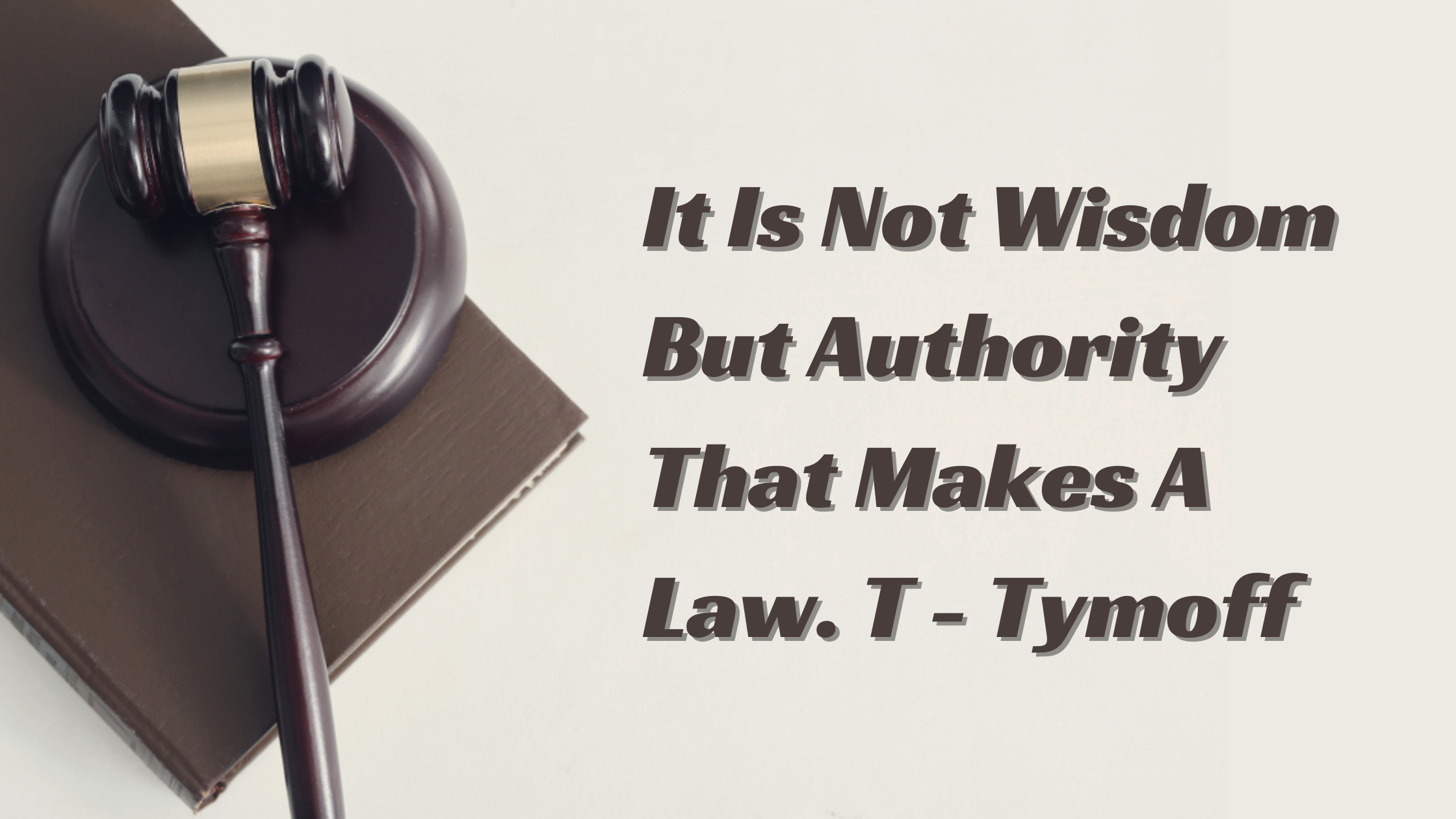
The Impact of Authority on Legal Systems
Authority and the Rule of Law
The principle of the rule of law dictates that laws should be applied consistently and impartially. However, it is not wisdom but authority that makes a law. t – tymoff means that the authority behind the law plays a crucial role in its application. Legal systems must balance the power of authority with the need for fairness and justice.
In many legal systems, authority is derived from democratic processes, where elected officials create laws that reflect the will of the people. However, the effectiveness of these laws depends on the institutional authority to enforce them and the mechanisms in place to ensure compliance and address grievances.
The Challenges of Authority-Based Lawmaking
One of the challenges associated with it is not wisdom but authority that makes a law. t – tymoff is ensuring that laws are just and effective despite being driven by authority. In cases where authority is concentrated in the hands of a few, there is a risk that laws may reflect the interests of the powerful rather than the collective wisdom of society.
Historical examples, such as authoritarian regimes, illustrate the dangers of lawmaking driven solely by authority. In such systems, laws may be imposed without regard for wisdom, leading to injustice and oppression. This highlights the need for checks and balances to prevent abuses of authority and to ensure that laws serve the common good.
Contemporary Perspectives on Legal Authority
The Role of Democratic Institutions
In modern democracies, it is not wisdom but authority that makes a law. t – tymoff through democratic institutions that are designed to represent the will of the people. Legislative bodies, such as parliaments and congresses, have the authority to create laws based on elected representation. While wisdom and expertise contribute to the lawmaking process, the ultimate authority rests with these institutions.
Democratic processes aim to ensure that laws reflect the values and needs of society. However, the effectiveness of this system depends on the integrity and accountability of the institutions involved. Public participation and scrutiny are essential to maintaining a balance between authority and wisdom in lawmaking.
The Influence of Globalization on Legal Authority
Globalization has introduced new dimensions to legal authority. International organizations, treaties, and agreements have expanded the scope of legal authority beyond national borders. For example, organizations like the United Nations have authority to create international laws and standards, though their legitimacy and effectiveness are often debated.
The interplay between national and international legal authorities raises questions about the balance between domestic sovereignty and global governance. As globalization continues to shape legal landscapes, the role of authority in international law becomes increasingly complex.
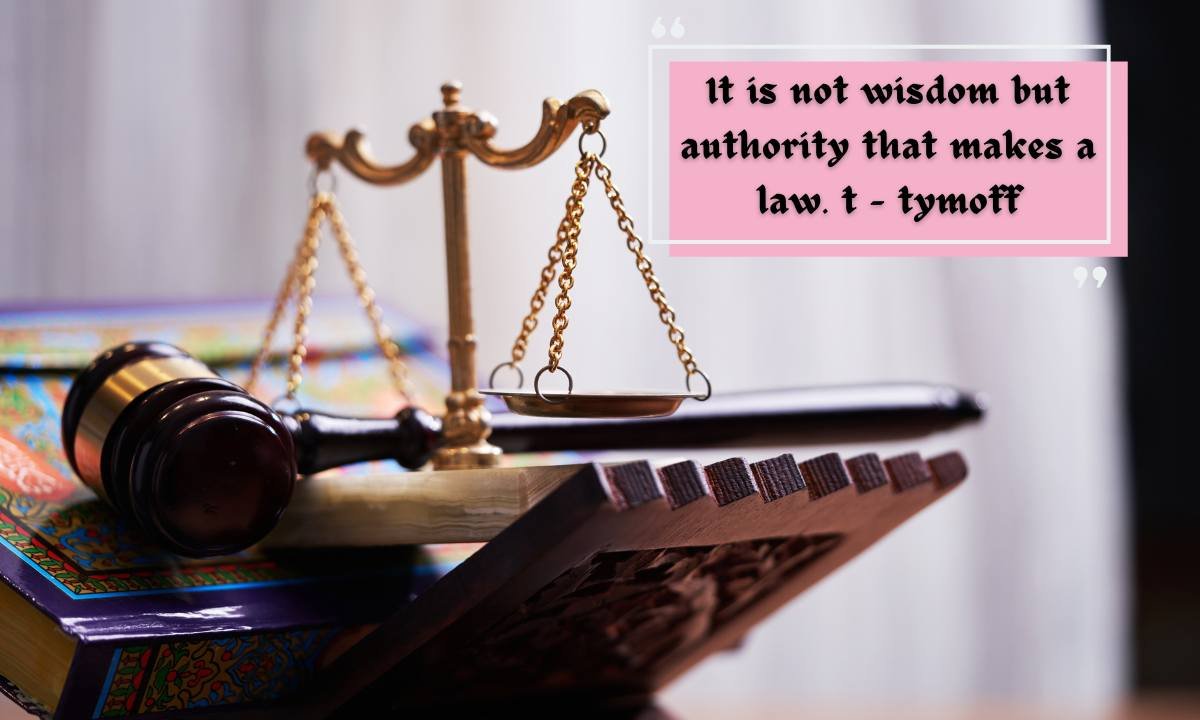
Case Studies and Examples
Case Study 1: The U.S. Constitution
The U.S. Constitution exemplifies how it is not wisdom but authority that makes a law. t – tymoff. The Constitution was created by a group of delegates with considerable political authority, and its authority has been upheld through amendments and judicial interpretation. While the framers of the Constitution were guided by wisdom and principles of justice, the authority of the document itself has shaped the legal and political landscape of the United States.
Case Study 2: The European Union
The European Union (EU) illustrates the impact of authority on legal systems in a multi-national context. The EU has the authority to create laws and regulations that apply across member states. The authority of EU institutions, such as the European Commission and the European Parliament, plays a crucial role in shaping European law. Despite the wisdom and expertise involved in crafting these laws, their authority is paramount in ensuring compliance and integration among member states.
Conclusion
In summary, the statement “it is not wisdom but authority that makes a law. t – tymoff” emphasizes the fundamental role of authority in the creation and enforcement of laws. While wisdom and moral reasoning are important in shaping legal norms, it is the authority of institutions and individuals that ultimately defines and sustains the legal system.
Understanding the dynamics between authority and wisdom is crucial for evaluating the effectiveness and fairness of legal systems. By recognizing the impact of authority, we can better appreciate the complexities of lawmaking and the need for mechanisms that ensure justice and accountability.
